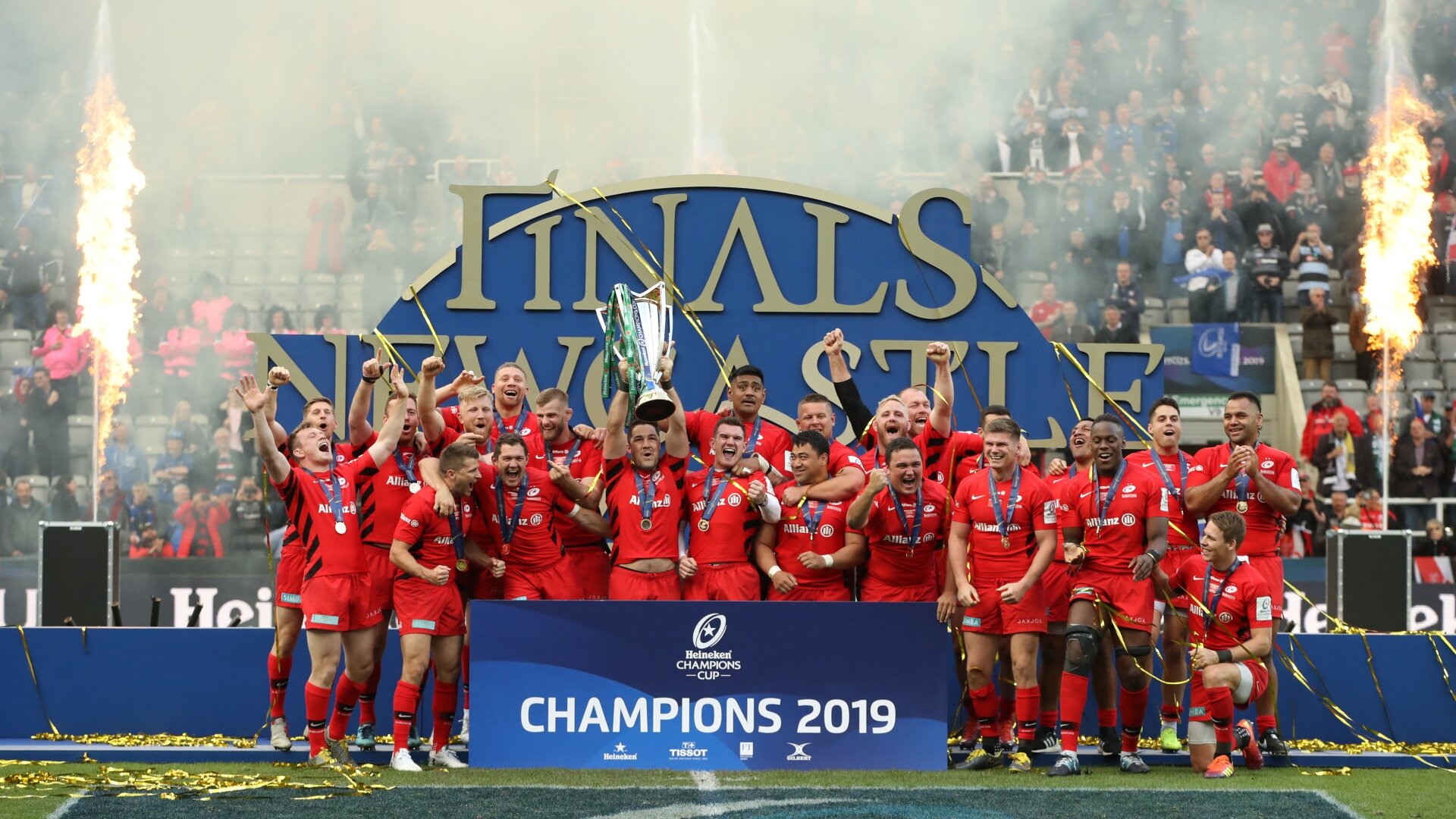Same old story in Premiership with Saracens' dominance set to continue

Saracens launch their bid to win a third consecutive Premiership crown this season – but can anyone stop them from steamrollering their way to yet another title?
Mark McCall’s Saracens have been a regular feature in the Premiership final at Twickenham, appearing five times in the last six years and scooping the main prize on four of those occasions.
The London outfit beat Exeter in the last two showpiece finals to take their title tally to five. Success this year would see them draw level with both Bath and Wasps, who have six titles apiece, although they still have a way to get on level terms with Leicester, who have 10 Premiership crowns.
Saracens are odds-on favourites with bookmakers to win their third successive title before they kick off their new campaign against Northampton, with Exeter slated as their biggest challenger, suggesting another arm wrestle between the west country and north London.
The Rugby World Cup is currently underway in Japan and, while the game’s biggest stars are focused on lifting the Webb Ellis Cup on November 2, over on home soil the Premiership Rugby Cup is giving fans an early indication of what is in store this season.
While the competition might be used to give younger players game time and experience, it also highlights the strength and depth of each squad.
Saracens have claimed two heavy wins to date and one defeat – the same as last season’s title rivals Exeter – while Sale and Harlequins both made perfect starts.
But of course, the returning world class stars are the players that will make a difference, and that is where Saracens have a wealth of riches, making up a quarter of Eddie Jones’s side in Japan.
https://www.instagram.com/p/B3b1ZyvAudU/
England captain Owen Farrell, powerhouse forwards Billy and Mako Vunipola, hookers Jamie George and Jack Singleton, full-back – and new signing – Elliot Daly, and rampaging locks George Kruis and Maro Itoje.
They make up 15 players from Saracens who have gone to the World Cup, making them the Premiership side with the greatest representation at the tournament and showing the talents they will capitalise on in the domestic season.
Exeter, too, have a wealth of talent and Bath boasted six players in action in Japan, while Leicester have nine.
Experienced loose forward Justin Tipuric will captain his country for the first time in his 69-test career. #RWC2019 #WALvURU https://t.co/juZvRTXr9K
— RugbyPass (@RugbyPass) October 11, 2019
Promoted London Irish could be a surprise package with big-name signings including Ireland international Sean O’Brien, Tonga’s Steve Mafi, Scotland’s Allan Dell and Australia internationals Adam Coleman and Sekope Kepu.
Last season Saracens topped the points-scoring charts, closely followed by Exeter, who ran in 100 tries to Saracens’ 88, although Leicester’s George Ford was the top points scorer and Sale’s Denny Solomona and Northampton’s Cobus Reinach claimed joint honours as top try scorers with 12 apiece.
However, with Saracens’ collective force and a winning habit, it is hard to see past them booking their place in the final at Twickenham on June 20, 2020.
– PA
Are England favourites to take our the Rugby World Cup?:





































































